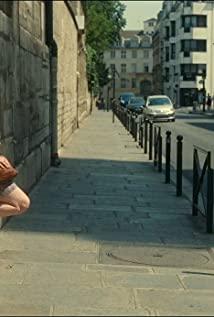C'est la Vie, generally translated, this is life. When it comes to the Chinese context, it is inevitable that literary and artistic hypocrisy is inevitable. When you haven't even started your life, saying that this is life, you can't help but feel that there is a "pit" in the front and a "hole" in the back, whether you are jumping or not. But if C'est la Vie is translated, this is life. I am afraid that there is a bit more of the atmosphere of the red socialist masses of the people with special national conditions.
L'avenir, French means future. How much future does a 55-year-old middle-aged high school philosophy teacher have? Mia Hansen-Love spent 100 minutes focusing on a middle-aged French woman. If it is related to the current predicament of Chinese feminism, women over 25 years old are already overwhelmed by public opinion, and there is probably no imagination that can be put on a person to middle age, and life encounters bottlenecks everywhere on the woman. This kind of film is probably only a French person who has the heart to make it in the context of today's excessive consumerism.
Natalie, played by Huppert, is an ordinary high school philosophy teacher. She has a mother who has been unhappy all her life, a pair of children, and a husband who is also a teacher. Her mother was like the fabled old French lady who was mentally debilitated. She had to jump off a building in three days, commit suicide in two days, and go on a hunger strike one day. But every time her daughter comes, she has to dress herself up. Under the camera, the actress who played Yu Peier's mother, even in her old age, can still see the graceful appearance of the year. As for Natalie and her husband, after 25 years of marriage, everything is starting to feel weak. Everything seemed peaceful, and the family sat and dined peacefully, enjoying family happiness. And how could the undercurrent of life let her go?
So the daughter found out that her father was cheating on her. The husband voluntarily admits to cheating, and wants to move out and live with his lover. The mother, who had tossed her all her life, finally passed away. The life that seemed to be filled, suddenly became a lot empty. There is no hysteria, no emotional out of control, life is just helpless to her. Reluctantly accept changes in people and things, changes in fate. In this way, she quietly sent her mother away. On the way to the car, she saw her ex-husband and lover on the road, and she smiled, alors ça. This scene is really, Huppert made the role come alive. Who would have thought that she used such a reaction to interpret the complexity of this role. One moment ago, I was still saddened by the passing of my mother, and the next moment I saw my ex-husband and lover. Life suddenly slapped you, but you laughed lightly.
This is life, this is life.
It's not that she has never been confused. Walking on the grass with former students, she will also complain about the injustice of society to women over the age of 40. 25 years of marriage is not worth the beauty of the moon. The flickering affection with the students, if there is no such thing, happens to be a lot of typical French affection, and few people are willing to pierce something. Feelings are left like this, accompanied by time, passing together.
A year after the end of the movie, Natalie became a grandmother, and the old black cat left by her mother was also adopted by the students.
Living Buddhahood has a new beginning, but why has it ever stopped?
Female director Mia Hansen-Love, whose father is a professor of philosophy at Sorbonne University, also explained that a young director can write a philosophy teacher's family life dialogue in detail, and the plot and the jokes in the dialogue, Just right and not too much of a reason. I'm afraid some of the dialogue in the play just comes from her own life.
This film inherits the consistent style of French literary films, and any film can be made into a wonderful boiled water film. However, if it is based on life and focuses on life, why shouldn't it be like in the movie? It's just a spoonful of water in a glass, no matter how rough it is. Is it a rough sea or a little water wave? Mostly it depends on personal mood.
How, not life? Fate, why does it need to be confronted?
View more about Things to Come reviews










